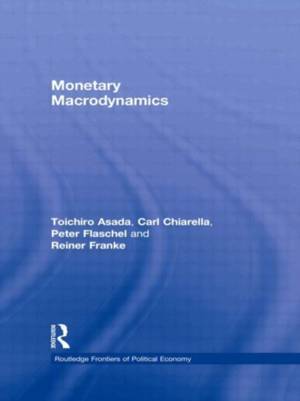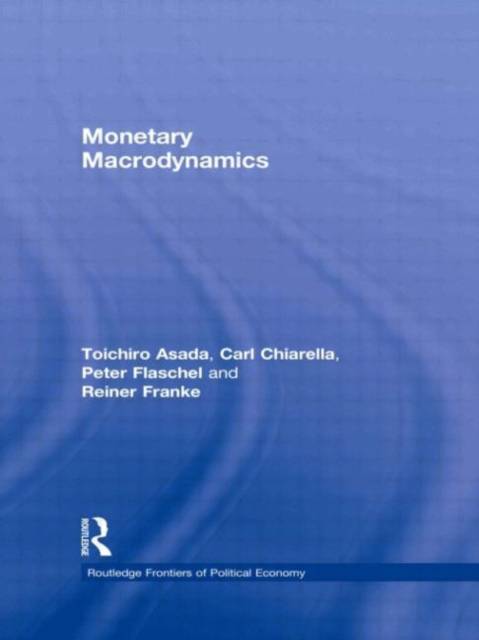
- Retrait gratuit dans votre magasin Club
- 7.000.000 titres dans notre catalogue
- Payer en toute sécurité
- Toujours un magasin près de chez vous
- Retrait gratuit dans votre magasin Club
- 7.000.0000 titres dans notre catalogue
- Payer en toute sécurité
- Toujours un magasin près de chez vous
Description
This book investigates the interaction of effective goods demand with the wage-price spiral, and the impact of monetary policy on financial and the real markets from a Keynesian perspective. Endogenous business fluctuations are studied in the context of long-run distributive cycles in an advanced, rigorously formulated and quantitative setup. The material is developed by way of self-contained chapters on three levels of generality, an advanced textbook level, a research-oriented applied level and on a third level that shows how the interaction of real with financial markets has to be modelled from a truly integrative Keynesian perspective.
Monetary Macrodynamics shows that the balanced growth path of a capitalist economy is unlikely to be attracting and that the cumulative forces that surround it are controlled in the large by changes in the behavioural factors that drive the wage-price spiral and the financial markets. Such behavioural changes can in fact be observed in actual economies in the interaction of demand-driven business fluctuations with supply-driven wage and price dynamics as they originate from the conflict over income distribution between capital and labour.
The book is a detailed critique of US mainstream macroeconomics and uses rigorous dynamic macro-models of a descriptive and applicable nature. It will be of particular relevance to postgraduate students and researchers interested in disequilibrium processes, real wage feedback channels, financial markets and portfolio choice, financial accelerator mechanisms and monetary policy.
Spécifications
Parties prenantes
- Auteur(s) :
- Editeur:
Contenu
- Nombre de pages :
- 448
- Langue:
- Anglais
- Collection :
Caractéristiques
- EAN:
- 9780415548373
- Date de parution :
- 04-05-10
- Format:
- Livre relié
- Format numérique:
- Genaaid
- Dimensions :
- 155 mm x 234 mm
- Poids :
- 816 g

Les avis
Nous publions uniquement les avis qui respectent les conditions requises. Consultez nos conditions pour les avis.






